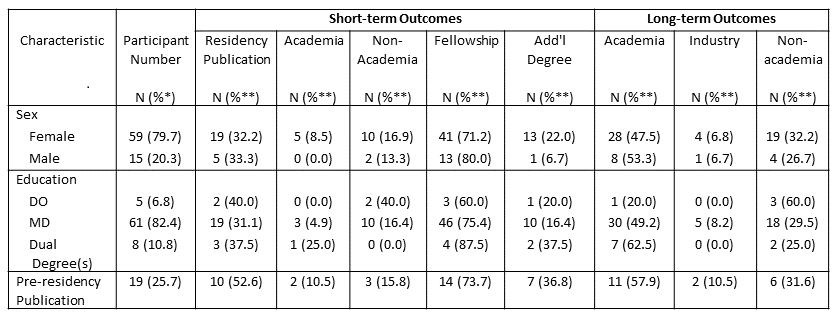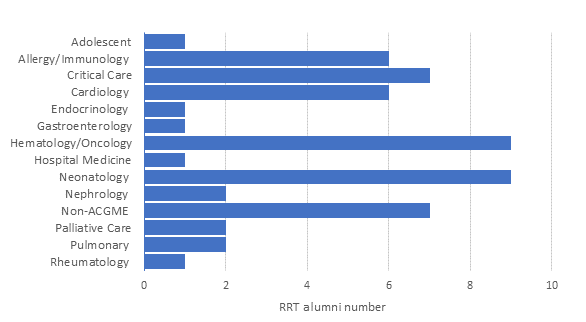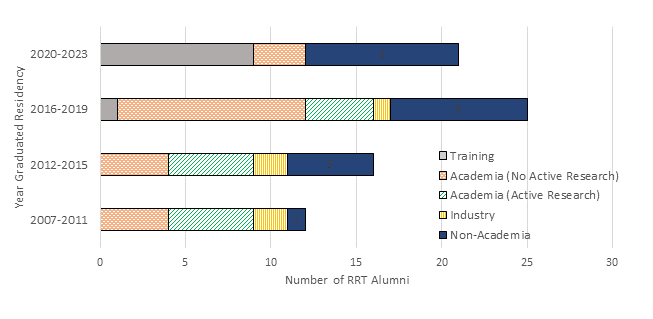Medical Education
Session: Medical Education 5
405 - Developing Physician Scientists: Career Outcomes Following Participation in a Resident Research Track Curriculum
Saturday, May 4, 2024
3:30 PM - 6:00 PM ET
Poster Number: 405
Publication Number: 405.1395
Publication Number: 405.1395

Candace Gildner, MD/PhD (she/her/hers)
Assistant Professor of Pediatrics and Biomedical Engineering
UNIVERSITY OF ROCHESTER
Rochester, New York, United States
Presenting Author(s)
Background: The development and retention of pediatric physician scientists is a challenge. Residency is an opportune time to promote interest in pediatric research. Tracking career outcomes of residents who participated in research is necessary for program evaluation and development. For 20 years, the University of Rochester has offered a pediatric resident research track (RRT), providing a research curriculum and protected time to complete a mentored project.
Objective: Our objective was to determine short- and long-term career outcomes of RRT alumni.
Design/Methods: We obtained fellowship training and employment status of RRT alumni, graduating residency between 2007 – 2023, from publicly available internet data. We performed searches in SCOPUS, Embase, and Web of Science to obtain alumni publication records. Publication in the years 2022 or 2023 and a rate of at least 1 publication/year defined active involvement in research. NIHReporter was queried to determine grant awardee status. The number of non-RRT categorical resident alumni who pursued fellowship was provided by the residency program.
Results: A total of 74 (32%) categorical pediatric residents from the 2007-2023 graduating classes participated in the RRT. Table 1 shows short-and long-term alumni job outcomes. In all, 34% of RRT alumni published during residency. Following residency graduation, 54 (73%) pursued fellowship, 12 (16%) pursued non-academic practice, and 5 (7%) pursued non-fellowship academic careers. The incidence of fellowship training among RRT graduates was 1.9-fold higher than that of categorical residents who did not participate in the RRT. Figure 1 shows fellowships pursued by RRT alumni. Figure 2 shows current job status of RRT alumni grouped by residency graduation year. Currently, 10 alumni are in training. Fellowship graduates (N = 46) are employed in academia (67%), non-academic practice (24%), and industry (11%). Of alumni who work in academia (N = 36), 38% actively participate in research. None of the alumni who pursued academic careers directly following residency (i.e. not fellowship trained) met criteria for active participation in research. Two RRT alumni have government grant funding.
Conclusion(s): We identified career outcomes of RRT alumni for the past 16 years. Individuals with varying research experience participated and alumni preferentially pursued fellowship training. The active number of alumni who remain in academia and participate in research is encouraging. Future work will identify facilitators or barriers of pediatric scientist development for RRT alumni and compare outcomes to non-RRT graduates.



